In the realm of culinary appliances, the contact grill has emerged as a versatile and efficient tool for achieving those perfect grill marks and mouthwatering flavors. As the demand for personalized and high-quality grilling solutions grows, the role of custom manufacturers in the contact grill industry becomes increasingly significant. From tailored features to cutting-edge designs, these manufacturers are shaping the future of grilling technology. Let’s delve into the benefits of choosing a custom manufacturer for contact grills and explore the evolving landscape of this dynamic industry.
Introduction to Contact Grill Custom Manufacturer
In the realm of outdoor cooking, the contact grill has emerged as a versatile and popular choice for both home chefs and professional chefs alike. But what sets a contact grill apart from its conventional counterparts? The answer lies in the hands of a contact grill custom manufacturer. These specialized artisans understand the unique needs of their clients and deliver tailored solutions that not only enhance the cooking experience but also elevate the aesthetic and functional aspects of the grill itself.
Custom manufacturers of contact grills take pride in their ability to craft appliances that are not just designed to perform, but also to stand out. From the sleek designs that complement modern kitchen aesthetics to the advanced features that cater to specific culinary preferences, these manufacturers are the architects of the ultimate grilling experience.
The process begins with a deep understanding of the market and the demands of various customers. Whether it’s a commercial establishment looking for a high-capacity grill or a consumer seeking a compact, portable model, custom manufacturers have the expertise to create solutions that fit the bill. This bespoke approach ensures that each contact grill is a perfect match for its intended use.
One of the key advantages of working with a custom manufacturer is the level of control over the final product. Clients can specify materials, heat distribution, cooking surface size, and even the inclusion of unique features like adjustable heat zones or non-stick coatings. This level of customization allows for a grill that is not just efficient but also a reflection of the user’s personal style and cooking habits.
In the world of custom manufacturing, innovation is not just a buzzword; it’s a way of life. Custom contact grill manufacturers are constantly pushing the boundaries of what’s possible, integrating cutting-edge technologies that improve cooking performance, durability, and user convenience. From advanced heat sensors to ergonomic handle designs, these innovations are seamlessly integrated into the final product.
Quality assurance is paramount in the custom manufacturing process. Each grill is subject to rigorous testing to ensure it meets or exceeds industry standards. This includes performance testing to guarantee even heat distribution, safety checks to ensure compliance with fire and electrical codes, and durability testing to ensure that the grill can withstand the rigors of frequent use.
For those who value the craftsmanship behind their appliances, custom contact grills offer a sense of pride and ownership. The ability to choose from a variety of grill styles, from classic stainless steel to sleek black ceramic, allows for a personal touch that is often missing in mass-produced appliances. The finish, the feel, and the overall design of a custom grill are elements that are carefully considered to provide a product that is as unique as the individual or business that will use it.
Moreover, custom manufacturers often offer a level of service that goes beyond the product itself. They provide consultations, design assistance, and ongoing support to ensure that the final product not only meets the initial specifications but also evolves with the changing needs of the customer. This commitment to customer satisfaction is what sets them apart in a crowded market.
The custom contact grill market is also responding to the growing trend of sustainability. Many manufacturers are now offering eco-friendly options, such as grills made from recycled materials or those that use energy-efficient technologies. This not only aligns with the values of environmentally conscious consumers but also opens up new opportunities for innovation in the industry.
In conclusion, the world of custom contact grill manufacturing is a dynamic and ever-evolving sector. It caters to a diverse range of needs and preferences, offering a level of personalization that is unmatched by standard, off-the-shelf models. As the demand for high-quality, unique cooking solutions continues to grow, custom manufacturers are at the forefront, providing the tools that chefs and grill enthusiasts need to create exceptional culinary experiences.
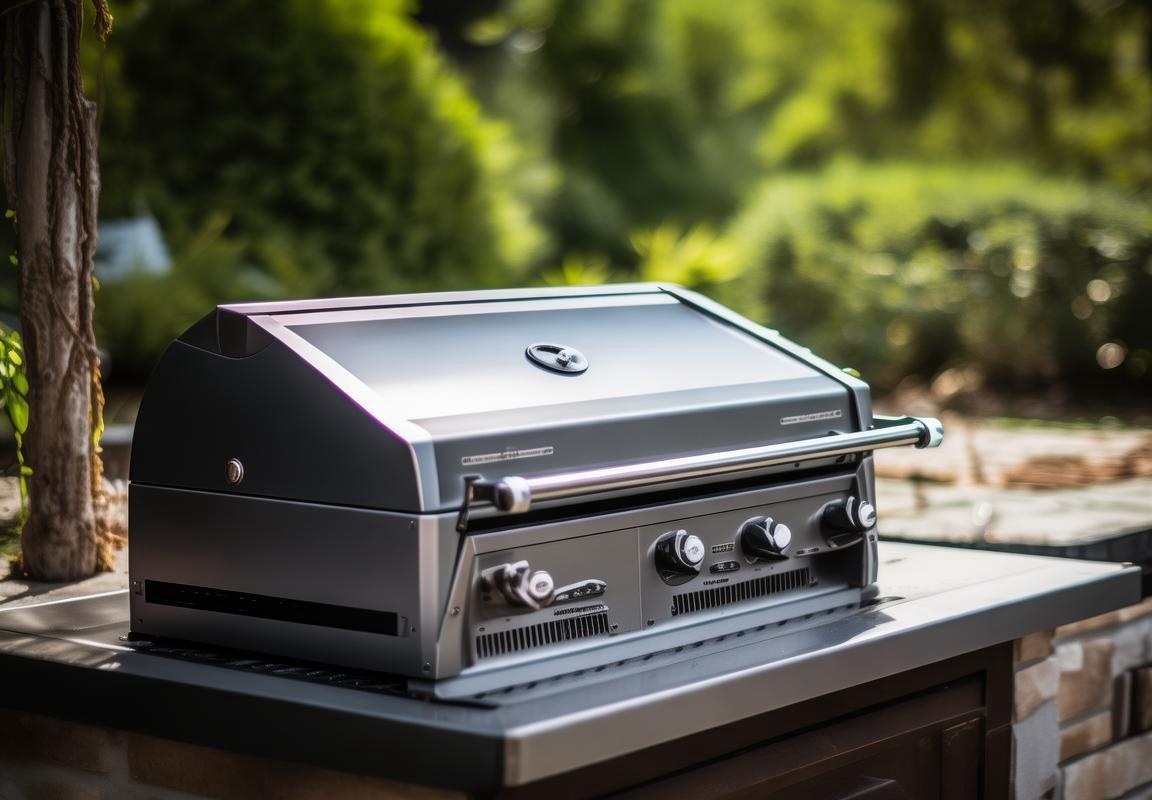
The Importance of Custom Manufacturing in the Grill Industry
In the ever-evolving grill industry, the role of custom manufacturing stands as a cornerstone for both innovation and customer satisfaction. The ability to tailor products to specific needs and preferences has become more than just a service—it’s a necessity. Here’s why custom manufacturing is of paramount importance in the grill industry.
Customization allows for a diverse range of products that cater to niche markets. Grills, once a one-size-fits-all product, now come in various shapes, sizes, and features. From portable grills for tailgating to large commercial-grade units for restaurants, the versatility of custom manufacturing ensures that there’s a grill for every type of user. This diversity not only meets different consumer needs but also opens up new market segments.
The rise of personalized products has also enhanced consumer engagement. People are no longer just buying a grill; they’re investing in a piece of equipment that reflects their personal style and preferences. Custom manufacturers often incorporate elements such as unique finishes, branded logos, or specialized cooking surfaces, which not only makes the product more appealing but also fosters a sense of ownership and pride among consumers.
Innovation thrives in a landscape where custom manufacturing is embraced. When manufacturers are free to experiment with materials, designs, and technologies, it leads to groundbreaking products. This is particularly crucial in the grill industry, where advancements in cooking technology can significantly impact the consumer experience. For example, the introduction of infrared burners, smart temperature controls, and self-cleaning features are all a result of the ability to customize and innovate.
Another critical aspect of custom manufacturing is the quality control it allows. By working closely with customers, manufacturers can ensure that every grill meets the highest standards of quality and durability. This personalized approach means that each component is meticulously chosen and tested, reducing the likelihood of defects and enhancing the overall performance of the grill.
Customization also facilitates a more sustainable approach to manufacturing. With the ability to produce grills in smaller batches or even on-demand, manufacturers can reduce waste and minimize their environmental footprint. This lean production model not only helps businesses stay cost-effective but also aligns with the growing consumer demand for eco-friendly products.
Moreover, custom manufacturing encourages collaboration between grill manufacturers and customers. This partnership can lead to a deeper understanding of market trends and customer needs, which is invaluable for long-term strategic planning. Manufacturers can use this feedback to stay ahead of the curve and anticipate future demands, ensuring they remain competitive in a fast-paced industry.
From a business standpoint, custom manufacturing can be a powerful differentiator. Companies that offer customization services can command premium pricing due to the unique value proposition they provide. This not only increases profitability but also positions the brand as a leader in innovation and customer service.
Furthermore, custom manufacturing allows for rapid prototyping and iteration. This agility is crucial for adapting to market changes quickly, whether it’s a new design trend or a shift in consumer preferences. The ability to tweak and improve products without extensive delays ensures that manufacturers can maintain a competitive edge.
The integration of advanced manufacturing technologies, such as 3D printing, has also expanded the possibilities for custom manufacturing. These technologies enable the creation of complex grill parts with precision and efficiency, opening doors to intricate designs and custom features that were once impossible.
Lastly, custom manufacturing supports the growth of local economies. By keeping production close to the customer, manufacturers can create jobs and stimulate economic activity in their communities. This localized approach also ensures faster delivery times and more responsive customer service.
In conclusion, the importance of custom manufacturing in the grill industry cannot be overstated. It drives innovation, enhances customer satisfaction, supports quality control, promotes sustainability, fosters collaboration, and provides a competitive advantage. As the industry continues to evolve, the role of custom manufacturing will undoubtedly become even more integral to its success.
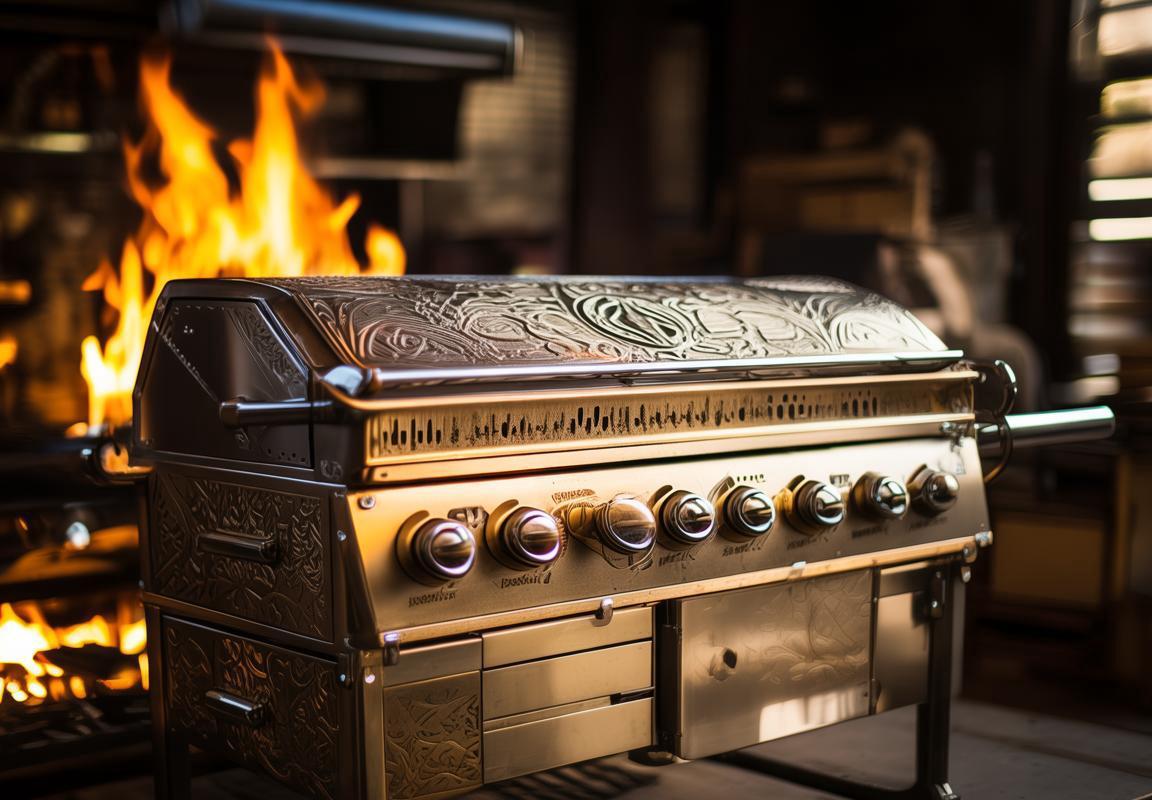
Benefits of Choosing a Custom Manufacturer for Contact Grills
Custom manufacturing for contact grills offers a myriad of benefits that can significantly enhance the quality, functionality, and appeal of these cooking appliances. Here’s a closer look at some of the key advantages:
-
Tailored Design to Specific NeedsCustom manufacturers understand that one size does not fit all in the world of contact grills. Whether it’s for commercial kitchens, outdoor events, or personal use, having a grill that’s designed to meet specific requirements is invaluable. From adjusting the size and shape of the grill surface to incorporating unique features, custom design ensures that the grill aligns perfectly with the user’s cooking style and space constraints.
-
Enhanced PerformanceWith custom manufacturing, the focus is on optimizing performance. This means that the materials used, the heat distribution, and the overall construction of the grill can be fine-tuned to provide the most efficient cooking experience. Custom grills can be engineered to maintain consistent temperatures, reduce hot spots, and provide even cooking across the entire surface, resulting in professional-grade results every time.
-
Brand Identity and DifferentiationFor businesses and brands, a custom contact grill can be a powerful tool for brand differentiation. By creating a grill that reflects the company’s identity, whether through unique colors, logos, or materials, businesses can stand out in a competitive market. Customization allows for a level of branding that is often not possible with standard, off-the-shelf products.
-
Durability and LongevityWhen a contact grill is custom-made, the manufacturer can use high-quality materials and construction techniques that ensure durability. This means the grill is not only built to last but also to withstand the rigors of frequent use. The longevity of a custom grill can translate into cost savings over time, as it may not need to be replaced as frequently as a mass-produced counterpart.
-
Energy EfficiencyCustom grills can be designed with energy efficiency in mind. By focusing on better insulation, improved heat retention, and more efficient heating elements, custom manufacturers can create grills that use less energy while still delivering the desired cooking performance. This not only benefits the environment but also reduces operating costs for the end-user.
-
Safety FeaturesSafety is a top priority in the manufacturing of cooking appliances. Custom manufacturers can incorporate advanced safety features that may not be available on standard models. This could include features like automatic shut-off mechanisms, temperature controls, and non-slip surfaces, all of which contribute to a safer cooking environment.
-
Cost-Effectiveness Over TimeWhile custom manufacturing might involve a higher upfront cost, it can be more cost-effective in the long run. By avoiding the need for frequent repairs or replacements, custom grills can save money on maintenance and operational costs. Additionally, the longevity of a well-designed custom grill can reduce the need for future investments in new equipment.
-
Custom Integration with Existing EquipmentFor commercial kitchens, having a custom contact grill that integrates seamlessly with existing equipment is crucial. Custom manufacturers can design grills that are compatible with the rest of a kitchen’s setup, ensuring a cohesive and efficient workflow.
-
Unique Features and InnovationsCustom grills offer the opportunity to include unique features and innovations that are not available in standard models. This could range from advanced cooking technologies to innovative design elements that enhance the user experience.
-
Support and ServiceWhen you work with a custom manufacturer, you often receive personalized support and service. This means that any issues or questions can be addressed promptly, and the manufacturer is invested in the long-term satisfaction of their customers.
In summary, the benefits of choosing a custom manufacturer for contact grills are vast, from the ability to tailor the design to specific needs and enhance performance, to the potential for cost savings and increased brand recognition. Customization is not just about creating a unique product; it’s about crafting a solution that is perfectly suited to the individual or business that will be using it.
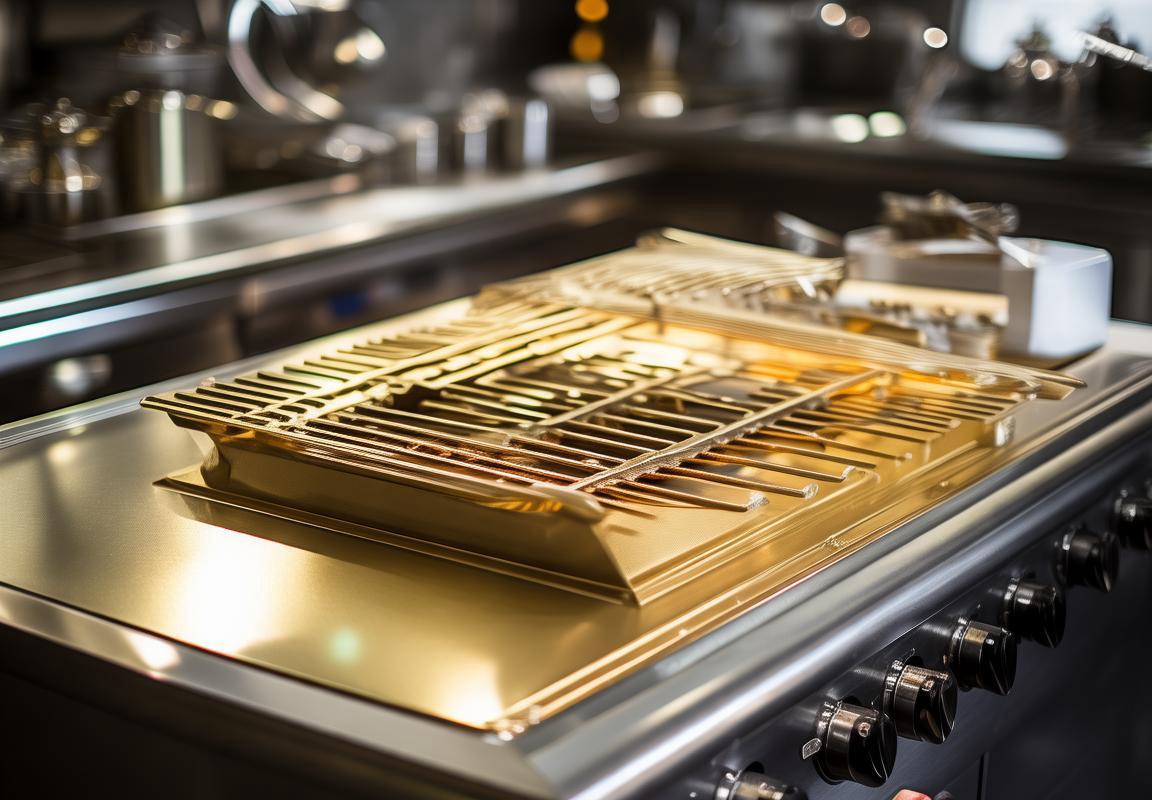
Understanding the Customization Process
In the world of contact grill manufacturing, the process of customization is a crucial aspect that can significantly enhance the end product’s value. Understanding this process involves several key steps that bridge the gap between a standard product and a tailored solution that meets specific needs. Here’s a breakdown of what you should know about the customization process:
The initial stage of customization often involves gathering detailed requirements. This step is essential as it lays the foundation for the entire project. Clients may provide specific dimensions, materials, heat settings, and design preferences. Custom manufacturers then meticulously analyze these specifications to ensure that the final product will meet or exceed expectations.
Design Collaboration is a cornerstone of the customization process. Manufacturers typically work closely with clients to create prototypes that embody the desired features. This collaboration is crucial because it allows both parties to visualize the end product and make any necessary adjustments before moving forward. Design software and 3D modeling play a vital role in this phase, providing a realistic representation of the grill’s potential look and functionality.
Material Selection is a critical decision point. Custom grills can be made from various materials, each with its own set of benefits and drawbacks. Stainless steel is durable and easy to clean, while aluminum offers better heat conductivity. Manufacturers must consider factors such as the grill’s intended use, the environment in which it will be used, and the client’s budget to make the most suitable material choice.
Customization also extends to the grill’s features. Clients might request additional functionalities like adjustable heat zones, non-stick surfaces, or built-in temperature controls. The manufacturer must then ensure that these features are integrated seamlessly into the design without compromising the grill’s performance or safety. This often requires specialized engineering and testing to guarantee reliability.
Prototyping is a pivotal step that allows both the manufacturer and the client to validate the design. The prototype phase involves creating a functional model of the custom grill, which is then tested for durability, heat distribution, and ease of use. Feedback from this stage is invaluable, as it helps to identify and rectify any issues before the full production run begins.
Quality Assurance is integral to the customization process. Manufacturers must adhere to stringent quality control measures to ensure that each custom grill meets the highest standards. This includes rigorous testing of components, assembly, and final product inspection. Quality assurance not only guarantees customer satisfaction but also helps maintain the manufacturer’s reputation for excellence.
Supply Chain Management plays a significant role in the customization process. Since each custom grill is unique, manufacturers must manage a supply chain that can accommodate the varied needs of each project. This may involve sourcing materials from different suppliers, managing production timelines, and coordinating with shipping and logistics to ensure timely delivery.
Customization also involves cost management. While a custom product offers unique advantages, it’s essential for manufacturers to provide clients with a clear understanding of the associated costs. This includes material costs, labor, design fees, and any additional services required. Transparent communication about pricing helps to manage expectations and maintain a strong client relationship.
Post-Production Support is another critical aspect of the customization process. After the grills are manufactured and delivered, manufacturers often offer technical support and service to ensure that the clients are satisfied with their products. This can include follow-up consultations, maintenance tips, and troubleshooting assistance.
The Customization Process is Iterative. It’s not uncommon for clients to request further modifications or improvements after the initial delivery. Manufacturers should be prepared to engage in an iterative process, making adjustments as needed to ensure that the final product aligns with the client’s evolving requirements.
In conclusion, the customization process for contact grills is a detailed and collaborative endeavor that requires careful planning, design, and execution. By understanding each step and its importance, both manufacturers and clients can work together to create a product that not only meets specific needs but also stands out in the competitive grill industry.
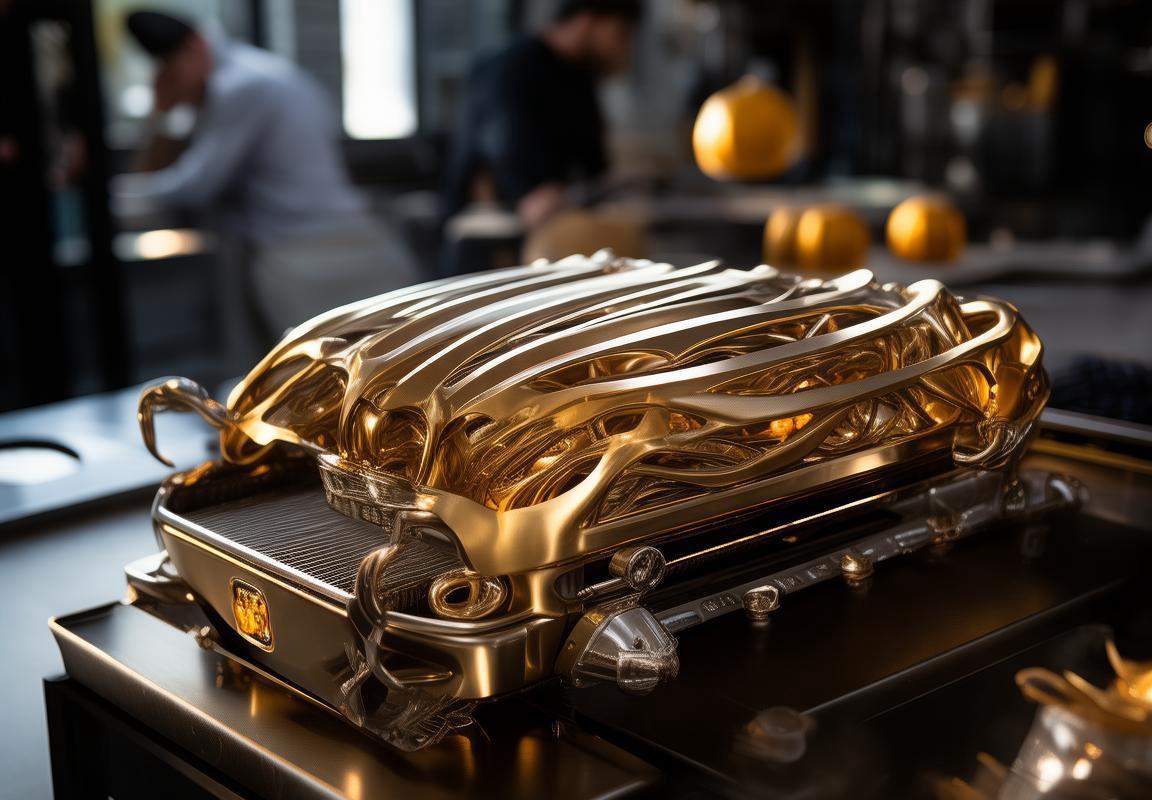
The Role of Innovation in Contact Grill Manufacturing
In the ever-evolving landscape of contact grill manufacturing, innovation plays a pivotal role in driving the industry forward. This relentless pursuit of improvement not only enhances the functionality and efficiency of these appliances but also shapes consumer experiences and market trends. Here’s a deeper look into how innovation drives contact grill manufacturing:
Grill Technology AdvancementsInnovation in contact grill manufacturing often begins with the technology itself. The introduction of advanced heating elements, such as infrared and ceramic, has significantly improved cooking temperatures and uniformity. These technologies not only reduce cooking times but also minimize the risk of overcooking, preserving the flavors and textures of food.
Design EvolutionThe design of contact grills has seen a remarkable evolution. From the sleek, compact models that cater to small kitchens to the larger, feature-packed grills designed for outdoor cooking enthusiasts, the industry has responded to the diverse needs of consumers. Innovative designs often include features like adjustable temperature controls, non-stick surfaces, and integrated cooking grids, all of which enhance the user experience.
Smart IntegrationThe integration of smart technology has become a cornerstone of contact grill innovation. With the advent of Bluetooth connectivity and smartphone apps, users can now monitor and control their grills remotely. This level of convenience not only makes cooking easier but also opens up new possibilities for meal preparation, such as tracking cooking times and temperatures, setting timers, and even following recipe guides.
Sustainability EffortsInnovation in contact grill manufacturing also extends to environmental sustainability. Manufacturers are increasingly focusing on using eco-friendly materials, reducing energy consumption, and developing products that are easier to recycle at the end of their lifecycle. These sustainable practices not only benefit the environment but also appeal to a growing segment of environmentally conscious consumers.
Safety FeaturesSafety is a critical aspect of contact grill innovation. Modern grills are equipped with various safety features that prevent accidents and ensure peace of mind. Features like automatic shut-off when the grill is left unattended, temperature control systems that prevent overheating, and secure handles and guards all contribute to a safer cooking environment.
Personalization OptionsPersonalization is another area where innovation thrives in contact grill manufacturing. Users can now customize their grills with different sizes, shapes, and materials for the cooking grids. This not only caters to individual preferences but also allows for specialized cooking experiences, such as using grills designed specifically for steak or sandwiches.
Durability ImprovementsDurability is a key factor in the success of any product, and innovation in this area ensures that contact grills can withstand the test of time. Materials used in construction, such as high-quality stainless steel and heavy-duty aluminum, are designed to withstand extreme temperatures and maintain their integrity even after years of use.
Health and Wellness FocusAs the health and wellness movement gains momentum, innovation in contact grill manufacturing is also addressing these concerns. New designs and features, such as those that allow for grilling with less oil, are becoming more common. This not only aids in reducing fat content in meals but also supports a healthier lifestyle.
Performance OptimizationThe performance of contact grills has been continually optimized through innovation. From faster heat-up times to improved cooking efficiencies, these grills now perform better than ever. Advanced thermal dynamics and insulation materials are being used to ensure that the grill reaches optimal cooking temperatures quickly and maintains them consistently.
User Interface and ExperienceThe user interface and overall experience of using a contact grill have been significantly enhanced through innovation. Clear, intuitive control panels, touch screens, and voice-controlled systems make operation simpler and more enjoyable. This user-friendly design helps to reduce frustration and allows for a more engaging cooking experience.
Collaboration and ResearchThe role of innovation in contact grill manufacturing is also fueled by collaboration and research. Manufacturers often work closely with culinary experts, researchers, and even consumers to gather insights and develop new ideas. This collaborative approach ensures that innovations are grounded in real-world needs and preferences.
In conclusion, the role of innovation in contact grill manufacturing is multifaceted, touching every aspect of design, functionality, and user experience. By continuously pushing the boundaries of what’s possible, the industry is not only improving existing products but also shaping the future of grilling.
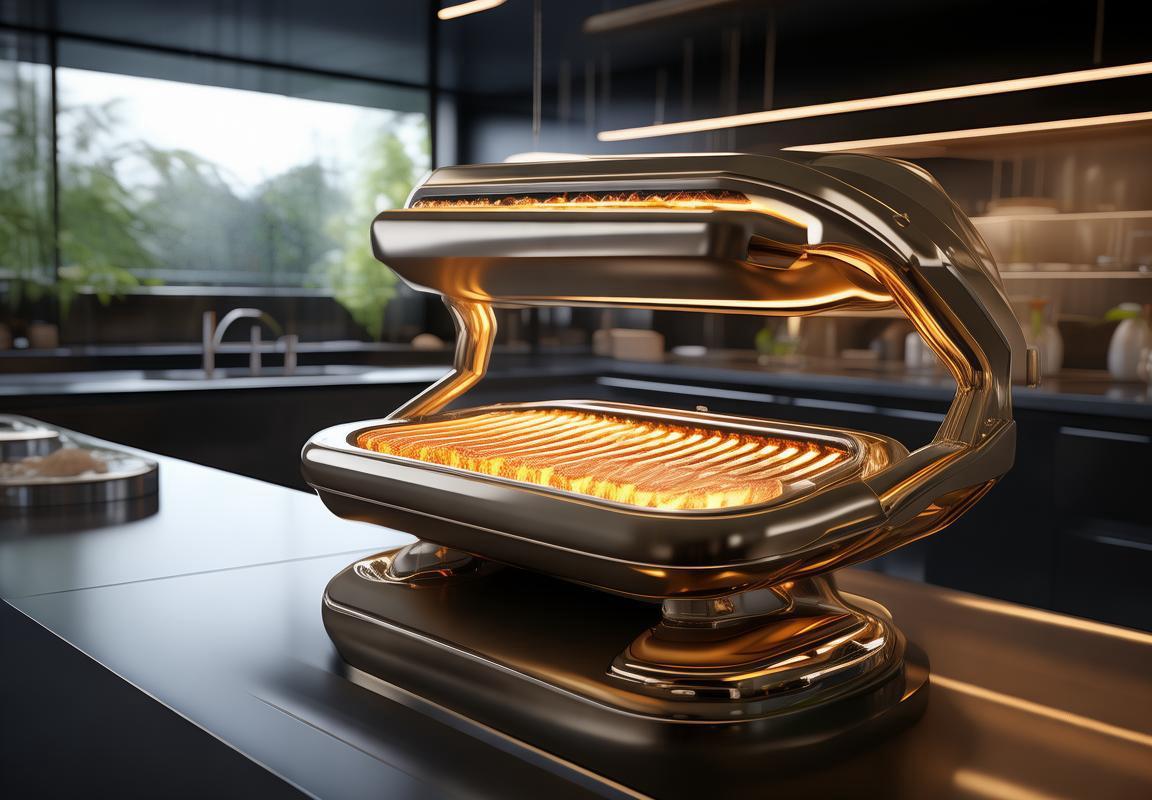
How Custom Manufacturers Meet Industry Standards and Regulations
In the world of contact grill manufacturing, adhering to industry standards and regulations is not just a requirement—it’s a cornerstone of quality and trust. Custom manufacturers understand that meeting these benchmarks is crucial for their brand reputation and the safety of their products. Here’s a closer look at how these professionals navigate the complex landscape of industry standards and regulations.
Manufacturers begin by ensuring that their materials are of the highest quality. They source components that are not only durable and efficient but also meet the stringent specifications outlined by regulatory bodies. This includes using stainless steel alloys for grill surfaces that are not only resistant to rust but also non-reactive to food, ensuring the integrity of the cooking process.
Safety is paramount in contact grill manufacturing. Manufacturers must comply with electrical safety standards to prevent any risk of fire or electric shock. This involves rigorous testing of all electrical components, such as heating elements and control panels, to ensure they operate within safe parameters. Compliance with these standards is not just about avoiding accidents; it’s about building a product that consumers can trust to use safely in their homes.
Environmental regulations are also a significant consideration. Custom manufacturers must ensure that their manufacturing processes are environmentally friendly, reducing waste and emissions. This might involve using energy-efficient machinery or implementing recycling programs for materials that cannot be reused. By doing so, they contribute to a sustainable future and appeal to a growing market segment that values eco-conscious products.
When it comes to food safety, custom manufacturers adhere to strict guidelines set by health authorities. This includes maintaining clean and hygienic facilities, as well as implementing quality control measures throughout the production process. Regular inspections and certifications, such as those from the NSF (National Sanitation Foundation) or the FDA (Food and Drug Administration), are a testament to a manufacturer’s commitment to food safety.
Quality assurance is a continuous process in custom contact grill manufacturing. Manufacturers employ a variety of testing methods to verify that their products meet or exceed industry standards. This can include mechanical testing to ensure the grill’s durability, thermal testing to confirm even heating, and material testing to guarantee the longevity of components.
Regulatory compliance also involves staying informed about changes to industry standards. Custom manufacturers must have a team dedicated to monitoring updates and ensuring that all products are in line with the latest requirements. This proactive approach helps them avoid costly recalls and maintain a competitive edge in the market.
Certifications are a visible sign of a manufacturer’s commitment to meeting industry standards. Custom grilling manufacturers often display certifications from recognized bodies like the UL (Underwriters Laboratories) or the CE (Conformité Européenne) mark, which signifies that their products meet European safety, health, and environmental protection requirements.
In the realm of product liability, custom manufacturers take great care to ensure that their products are free from defects. This involves thorough quality checks at every stage of production, from raw materials to finished goods. By doing so, they protect themselves and their customers from potential legal issues and maintain a strong reputation for reliability.
Moreover, custom manufacturers may also need to comply with specific industry regulations that pertain to their location or target market. For example, certain regions may have additional requirements for noise levels or energy consumption. Adhering to these local regulations is essential for the company to operate legally and successfully in that market.
The process of meeting industry standards and regulations is not without its challenges. It requires a deep understanding of the technical aspects of contact grill manufacturing, as well as a commitment to continuous improvement. Custom manufacturers invest in training their staff, updating their equipment, and staying abreast of the latest technological advancements to stay ahead of the curve.
In conclusion, the role of custom manufacturers in meeting industry standards and regulations is multifaceted. It involves a meticulous attention to detail, a dedication to quality, and a willingness to adapt to an ever-changing regulatory landscape. By doing so, they not only ensure the safety and satisfaction of their customers but also uphold the integrity of the contact grill industry as a whole.
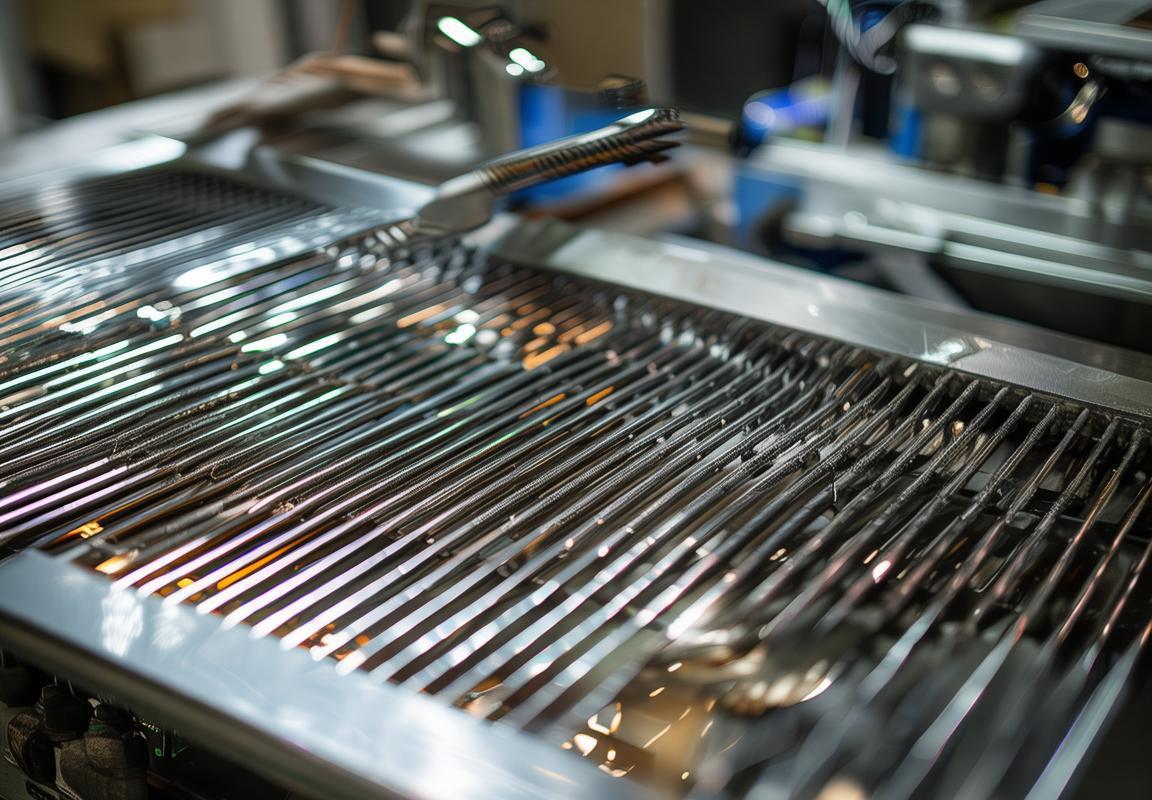
Success Stories: Real-World Applications of Custom Contact Grills
In the realm of custom contact grills, there are numerous success stories that highlight the practical applications of these tailored cooking solutions. From commercial kitchens to outdoor events, these grills have proven their versatility and efficiency. Here are a few examples of how custom contact grills have made a mark in the real world:
Grill Innovation in High-End RestaurantsHigh-end restaurants often seek unique culinary experiences for their patrons. One such establishment decided to elevate their menu by incorporating a custom contact grill. Designed with specific features to match their cooking styles, the grill became a centerpiece of their kitchen, allowing chefs to create intricate and gourmet dishes with precise control over temperature and surface contact.
Mobile Catering Vans and FestivalsMobile catering vans and food trucks have embraced custom contact grills for their ability to provide consistent heat distribution and efficient cooking. By integrating these grills into their mobile kitchens, operators can offer a variety of grilled dishes with ease. Festivals and outdoor events benefit from this flexibility, as the grills can be easily transported and set up, providing a high-quality grilling experience for attendees.
Health and Safety in Schools and HospitalsIn institutions like schools and hospitals, health and safety are paramount. Custom contact grills have been customized with non-stick surfaces and easy-to-clean designs, making them ideal for these environments. They minimize the risk of cross-contamination and reduce the need for harsh cleaning chemicals, ensuring a hygienic cooking solution that can be safely used by staff and students.
Custom Grills for Sports VenuesSports venues require quick and efficient food service options for large crowds. Custom contact grills have been adapted to fit into these settings, offering a fast and consistent cooking method for grilled items. Whether it’s serving up hot dogs, burgers, or chicken sandwiches, these grills can handle high volumes of food, keeping fans satisfied and the lines moving smoothly.
Customization for Event PlannersEvent planners are always looking for unique ways to enhance their events. Custom contact grills have been used to create interactive food stations, where guests can watch chefs prepare their meals in real-time. These grills not only serve as a cooking tool but also as a conversation starter, adding a touch of personalization to any event.
Custom Grills for Eco-Conscious BusinessesWith the rise of eco-friendly practices, custom contact grills have been modified to use less energy and reduce waste. For businesses looking to align their operations with sustainability goals, these grills offer a greener alternative to traditional cooking methods. From reducing fuel consumption to minimizing food waste, these custom solutions are a step towards a more environmentally responsible operation.
Custom Grills for Extreme Weather ConditionsCertain regions experience extreme weather conditions, and custom contact grills have been designed to withstand these challenges. With weatherproof materials and robust construction, these grills can be used in outdoor settings without compromising on performance. From polar vortex events to scorching summer days, these grills ensure that food is cooked to perfection, regardless of the weather.
In conclusion, the real-world applications of custom contact grills are vast and varied. From fine dining establishments to mobile catering services, these grills have proven their worth in enhancing the culinary experience, providing efficient service, and meeting the specific needs of diverse industries and environments. Each success story is a testament to the power of customization and the endless possibilities that come with it in the world of contact grilling.
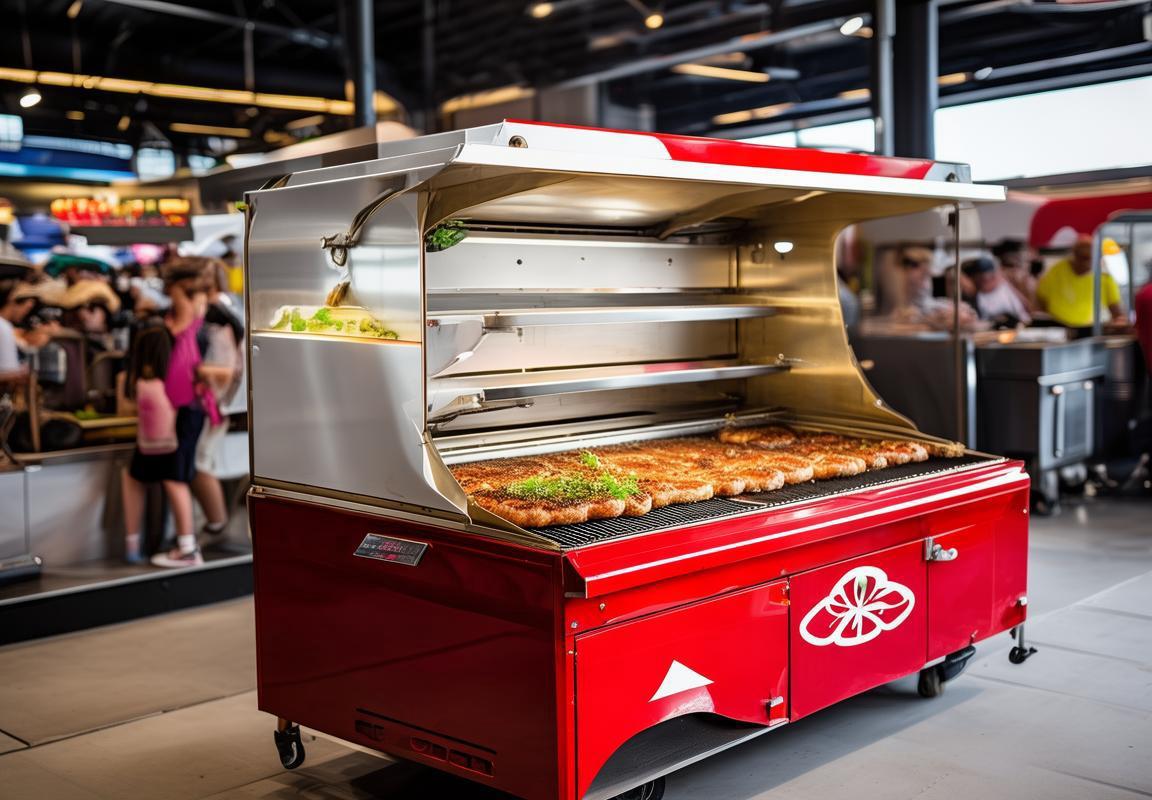
The Future of Custom Contact Grills: Trends and Predictions
The evolution of technology and consumer demands has paved the way for innovative solutions in the grill industry. Custom contact grills, in particular, have gained popularity due to their versatility and ability to cater to specific needs. As we look ahead, several trends and predictions are shaping the future of these custom grills, promising a blend of convenience, functionality, and sustainability.
-
Smart Integration: The integration of smart technology into custom contact grills is expected to become more prevalent. Users can now expect features like temperature control via smartphone apps, remote monitoring, and even voice-activated commands, making grilling an even more user-friendly experience.
-
Health and Wellness: As consumers become more health-conscious, custom contact grills are likely to feature non-stick coatings that reduce the need for oil, promoting healthier cooking habits. Additionally, materials used in manufacturing may shift towards eco-friendly options, addressing environmental concerns.
-
Modular Design: The future of custom contact grills may see a shift towards modular designs that allow users to customize their grills based on their specific needs. This could include interchangeable grill plates for different types of cooking, such as searing steaks or toasting sandwiches.
-
Enhanced Cooking Techniques: With advancements in materials and technology, custom contact grills could offer a wider range of cooking techniques. From perfecting the crust on bread to achieving a juicy, caramelized exterior on meats, these grills may become the go-to kitchen appliance for gourmet chefs and home cooks alike.
-
Increased Durability: As the demand for durable appliances grows, custom contact grill manufacturers may focus on creating products that can withstand the test of time. This could involve using high-quality stainless steel, ensuring resistance to rust and corrosion, and providing long-lasting performance.
-
Sustainability and Energy Efficiency: The future of custom contact grills may also involve a greater emphasis on sustainability and energy efficiency. This could mean the use of renewable energy sources for power, or appliances that consume less energy while still maintaining optimal cooking temperatures.
-
Personalization: With the rise of personalization in consumer goods, custom contact grills might offer a variety of color options, design prints, or even custom branding for commercial users. This could appeal to individuals and businesses looking to make a statement with their appliances.
-
Global Market Expansion: As the popularity of custom contact grills grows, we may see an increase in global demand, leading to expansion into new markets. This could necessitate a focus on international certifications and compliance with various global standards.
-
Collaboration with Chefs and Culinary Experts: Manufacturers may collaborate with chefs and culinary experts to develop custom contact grills that can replicate the cooking techniques used in professional kitchens, making gourmet cooking accessible to home cooks.
-
Integration with Smart Home Systems: Custom contact grills could become part of the broader smart home ecosystem, integrating with other kitchen appliances and systems. This would allow for seamless management of kitchen operations, from preheating the grill to setting timers and notifications.
The future of custom contact grills is poised to be an exciting one, with a focus on innovation, sustainability, and personalization. As these appliances continue to evolve, they will likely play a significant role in shaping how we cook and enjoy our meals, both at home and in commercial settings.
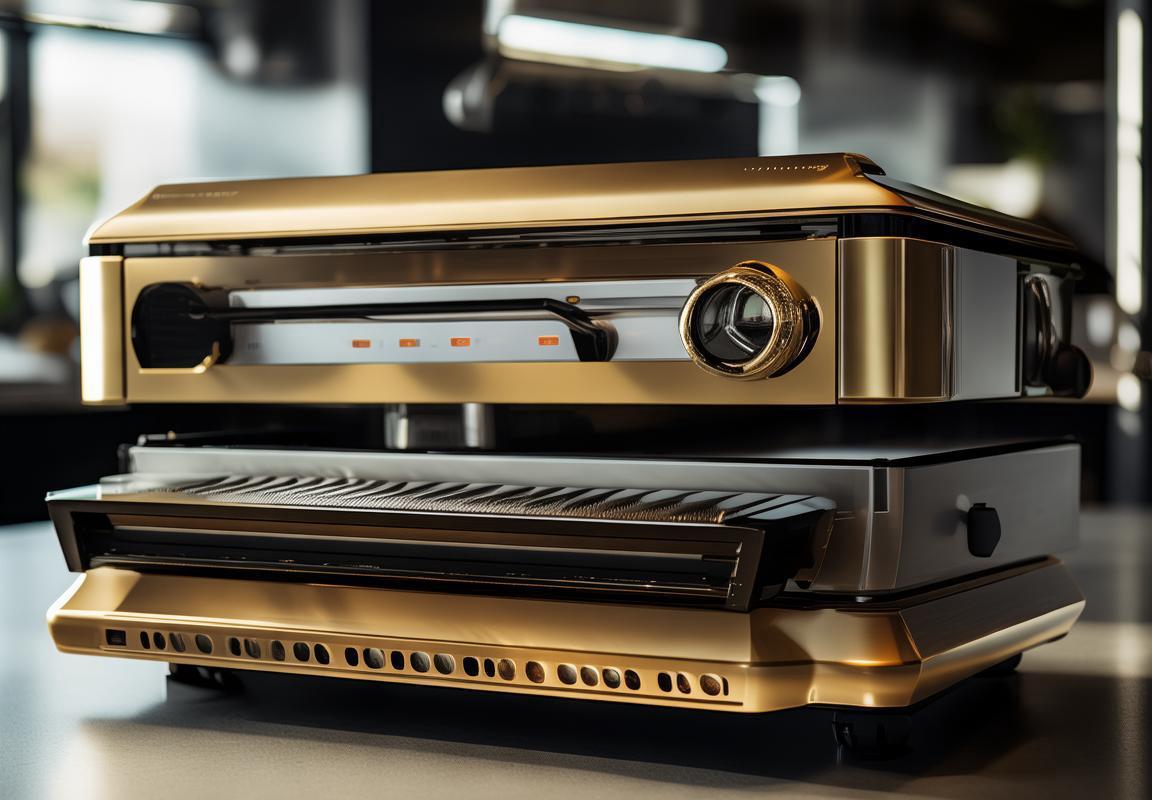
Final Thoughts on Partnering with a Contact Grill Custom Manufacturer
In the world of contact grill manufacturing, partnering with a custom manufacturer can be a game-changer. These manufacturers are not just about crafting grills; they are shaping the future of outdoor cooking with their innovative approaches and tailored solutions. Here are some final thoughts on why this partnership is invaluable.
Understanding the unique needs of each client, custom manufacturers offer a level of personalization that mass-produced grills simply can’t match. They listen to what customers want, whether it’s a specific design, material, or functionality, and deliver products that truly resonate with the end-users.
The flexibility that custom manufacturers provide is another key advantage. They can adapt to market trends and customer demands quickly, ensuring that the contact grills they produce are always at the forefront of innovation. This agility allows for the introduction of new features, such as eco-friendly materials or smart technology integration, that can set a brand apart from its competitors.
Moreover, working with a custom manufacturer means that the quality of the final product is consistently high. These manufacturers have the expertise to source the best materials, employ skilled artisans, and maintain rigorous quality control measures. This commitment to excellence translates into a grill that not only performs well but also stands the test of time.
In today’s world, sustainability is a crucial consideration. Custom manufacturers are increasingly adopting green practices in their production processes. This includes using recycled materials, minimizing waste, and reducing energy consumption. By choosing to partner with such manufacturers, businesses can contribute to a healthier planet while also appealing to eco-conscious consumers.
Collaborating with a custom contact grill manufacturer also offers the opportunity to create a product that reflects a brand’s identity. The unique branding, from the logo etched into the grill to the custom colors and designs, can create a lasting impression on customers. This level of brand differentiation is something that standard, off-the-shelf products cannot achieve.
The relationship with a custom manufacturer can also extend beyond the production phase. Many offer ongoing support, from maintenance and repair services to after-sales customer service. This holistic approach ensures that the brand’s reputation is maintained, and customers feel valued long after the purchase.
As we look ahead, the future of custom contact grills is bright. Advances in technology are opening up new possibilities, such as incorporating IoT (Internet of Things) capabilities, which could revolutionize how grills are used and maintained. Custom manufacturers are at the forefront of these developments, ready to push the boundaries of what’s possible.
Another trend that’s gaining momentum is the emphasis on health and wellness. Custom manufacturers are responding to this by creating grills that not only cook food efficiently but also do so in a way that’s healthy and safe. Features like adjustable heat settings and non-toxic materials are becoming standard in custom grill designs.
The global market for custom contact grills is also expanding, with new opportunities emerging in different regions. Custom manufacturers are not limited to domestic markets; they are exporting their high-quality products to countries around the world. This international growth highlights the global appeal of custom grills and the importance of having a manufacturer that can meet diverse international standards.
In conclusion, the partnership with a contact grill custom manufacturer is a strategic move for any brand looking to excel in the competitive grill industry. From the unique design and quality assurance to the sustainability and technological advancements, these manufacturers are the pillars of innovation and excellence. By choosing to work with them, brands can not only create a product that stands out in the market but also foster a long-lasting, successful relationship that benefits both parties.